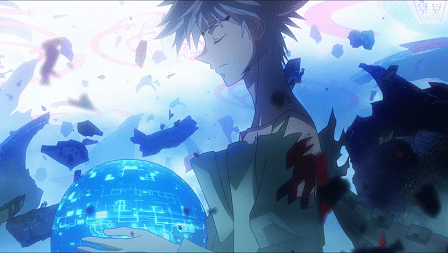
It’s a pleasure to discover a new (to me) writer of SF, especially a Canadian. Growing up in the U.S., as I did, I never knew that any SF writers were Canadian—I thought they were all American/U.S. or British—until I read that A.E. Van Vogt was. Then later, I encountered Phyllis Gotlieb. Later still, I found out that some favourite SF writers were expatriate Americans, like Judith Merril and Spider Robinson; and, of course, William Gibson. But as much as I love the above writers, there are and have been for many years other home-grown Canadian SF writers than the two mentioned who loom as large in my mental worldmap as any other SF writers; people like the late Dave Duncan and Michael G. Coney, Charles de Lint (q.v.) and Robert J. Sawyer (who also lives). I could name dozens more —like Candas Jane Dorsey, e.g., or Guy Gavriel Kay, Élisabeth Vonarburg, David Nickel—I could go on and on with just the well-known ones. None of the above is meant to denigrate any writer named (or unnamed) or intimate that they are less than equal to any other writer. But now I can add a new name to my TBR (To Be Read) list: Scott G. Overton, author of Oceanus and several more (Fig. 1). Moving to Canada—I came here in 1985—has been a science-fictional education in itself.
Set in a near future about 20 years from now, Oceanus at first appears to be a techno-thriller like so many that have hit the mainstream in the last 30 or so years, but it’s not even that, as most of them are used to expound the author’s love of futuristic technology—especially weaponry—and the plot and characters may be thicker than cardboard, but are generally only there so the author can expound on his or her (or their) technological extrapolations. Not so this book; although it makes use of some advanced tech ideas that don’t yet exist, they’re not the main focus of the book, which touches on ecology (looming ecodisaster), politics, human relations, and non-human contact.
Non-human contact? You mean like aliens? Well, let me give you the blurb from the author’s own page: Hostile aliens? Or a new and unthinkably powerful form of Earth life?
An ingenious troubleshooter, a reluctant psychic, a bionic xenobiologist, a brilliant engineer, and a blind psychologist will descend to the depths in a prototype submarine habitat, facing the most inhospitable environment on the planet to attempt a First Contact.
The plot revolves about a young Black woman, Elle Travis, who is something more than an empath—possibly even a telepath—who has been trying to hide her ability all her life, but is struck by a mental blast that wipes out the crew and passengers of a commercial flight above the ocean, though she is not aboard. (She is the “reluctant psychic” referred to in the blurb above.) The authorities quickly discover that something in the ocean has sent this mental blast toward Earth’s moon; and they decide to use Elle as a human dowsing rod to locate the source of the blast.
When it’s located, a cast of diverse characters is assembled to try out a prototype undersea habitat and perhaps contact whatever it is in the ocean—first, to find out if it’s native to Earth or from (da-da-dummm!) Outer Space!—secondly, to find out what its intentions are: hostile or friendly. Using advanced nanotech diving suits, these people will go to the ocean floor to see what they can see. (And if its intentions prove hostile, perhaps the Government—I presume the U.S. one, though that’s not actually specified—will do something about it.) And it appears other governments have similar ideas about whatever’s causing the blasts.
I’m trying to give you as much as I can without spoiling any plot points; I think the above is generic enough to hint without hitting too many specifics. The writing is good; the characters are well defined enough that you can empathize with most of them. The technology is plausible enough. Science is advancing all the time, so I didn’t find anything that set off mental red flags while reading.
And it’s exciting and involving once you get to know the two main characters; they are the most-defined ones. But here’s the main reason I liked this once I was finished with it. There’s too much doom and gloom about our future—the oceans are dying, the forests are either being clear-cut or burning; micro-plastics are in us and in our food, including almost all animals and sea life, the temperature’s rising, and so on. But while not offering concrete solutions—especially ones based on future bolognium or unobtainium—this book has a hopeful air about it. And not every character either dies or comes out of the book with a Shirley Temple Sunnybrook Farm ending, either. It’s somewhat realistic in that aspect.
I firmly believe that we can solve most of our issues if we (the human species) put our minds to it. In spite of political issues—right now, the world is echoing Tom Lehrer’s “National Brotherhood Week” song: “Oh, the white folks hate the Black folks/And the Black folks hate the white folks/All the wrong folks hate the right folks…and everyone hates the Jews!”—if we don’t destroy ourselves we can and will pull up our socks and come through it. If not unscathed—that’s highly unlikely—at least with a better attitude towards each other and our environment, which at this point is the only one we’ve got. (Kind of like the Canucks, who can get through the playoffs if they just cover their men and shoot the dang puck! You won’t get the “perfect pass,” so just shoot the puck when you get it! But I digress…)
The book will be available on May the Fourth (Be With You), and will be available on Amazon and at bookstores, I presume. The ebook will be available from these people (as well).
If you’d like to say anything about this, you can comment here or on Facebook, or even by email (stevefah at hotmail dot com). I’d really like to hear what you have to say, even if you disagree with me. My opinion is, as always, my own, and doesn’t necessarily reflect the views of Amazing Stories or its owner, editor, publisher or other columnists. See you next time!










